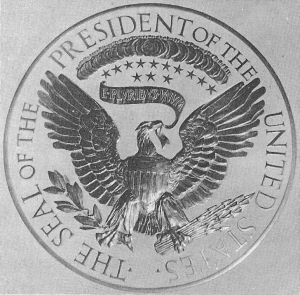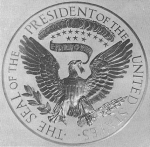excerpt from The Left, the Right, and the State by Llewellyn H. Rockwell Jr.:
In a truly free society, it wouldn’t matter who the president was. We wouldn’t have to vote or pay attention to debates. We could ignore campaign commercials. There would be no high stakes for ourselves, our families, or the country. Liberty and property would be so secure that we could curse him, love him, or forget about him.
This was the system the framers set up, or people believed they were getting, with the US Constitution. The president would never concern himself with the welfare of the American people. The federal government had no say over it. That was left to the people’s political communities of choice; here we were to govern ourselves and plan our own future.
The president was mostly a figurehead, a symbol. He had no public wealth at his disposal. He administered no regulatory departments. He could not tax us, send our children into wars, pass out welfare to the rich and poor, appoint judges to take away our rights, keep dossiers on the citizenry, control a central bank, or change the laws willy-nilly according to the wishes of special interests.
His job was to oversee a tiny government with virtually no powers (“few and defined,” Madison said) except to arbitrate disputes among the states, which were the primary governmental units. If the president transgressed his power, he would be impeached as a criminal. But impeachment would not be likely, because the threat was so ominous, it reminded him of his place.
He was also temperamentally unlikely to abuse his power because he was to be a man of outstanding character, well respected by the other leading men in society. He could be a wealthy heir, a successful businessmen, a highly educated intellectual, or a successful farmer. Regardless, his powers were to be minimal.
All this astonished Alexis de Tocqueville in 1830. “No citizen,” he wrote, “has cared to expose his honor and his life in order to become the President of the United States, because the power of that office is temporary, limited, and subordinate.” The president “has but little power, little wealth, and little glory to share among his friends; and his influence in the state is too small for the success or the ruin of a faction to depend upon his elevation to power.”
To make sure it stayed this way, the vice president was to be a political adversary. He was there to remind the president that he was eminently replaceable. In this way, the veep’s office was powerful, not over the people, but in keeping the central government in check.
The president was not elected by majority vote, but by electors chosen by the states. Most citizens could not vote. Those who could were deemed the most prudential and far-seeing of their fellows. They owned land, headed households, and were highly educated. And they were to think only of the security, stability, and liberty of the country, and the well-being of future generations.
For nonvoters, their liberty was to be secure no matter who won. They would have no access to special rights. Yet their rights to person, property, and self-government were never in doubt. For all practical purposes, they could forget about the president and, for that matter, the rest of the federal government. It might as well not exist.
People did not pay taxes to it. It did not tell people how to conduct their lives. It did not fight foreign wars, regulate their schools, surround their homes with police, bail out their business, provide for their retirement, much less employ them to spy on their neighbors.
Political controversies were centered at the level of the state and local governments. That included taxes, education, crime, welfare, and even immigration. The only exception was the general defense of the nation. The president was responsible for that. But with a small standing army, it was a minor position, absent a congressionally declared war.
There were two types of legislators in Washington: members of the House of Representatives, a huge body of statesmen that was to grow larger with the population, and members of the Senate, who were elected by powerful state legislatures. The Congress’s main power consisted of keeping the executive’s power in check.
Under the original design, the politics of this country was to be extremely decentralized, but the community to be united in another respect: by an economy that is perfectly free and a system of trade that allows people to voluntarily associate, innovate, save, and work based on mutual benefit. The economy was not to be controlled, hindered, or even influenced by any central commands.
People were allowed to keep what they earned. The money people used to trade with was solid, stable, and backed by specie. Capitalists could start and close businesses at will. Workers were free to take any job they wanted at any wage or any age. Business’s only mission was to serve the consumer and make a profit.
There were no labor controls, mandated benefits, payroll taxes, special benefits, or other regulations. For this reason, everyone was to specialize in what he did best, and the peaceful exchanges of voluntary enterprise caused ever-widening waves of prosperity throughout the country
What shape the economy took—whether agricultural, industrial, or high-tech—was to be of no concern to the federal government. Trade was allowed to take place naturally and freely, and everyone understood that it was better managed by property holders than by public office holders. The federal government couldn’t impose internal taxes if it wanted to, much less taxes on income, and trade with foreign nations was to be rivalrous and free. The only tariffs were to be revenue tariffs, and thus necessarily low to maximize trade and therefore revenue.
If by chance this system of liberty began to break down, the states had an option: to separate themselves from the federal government and form a new government. The law of the land was widely understood to make secession possible. In fact, it was part of the guarantee required to make the Constitution possible to begin with.
This system reinforced the fact that the president is not the president of the American people, much less their commander in chief, but merely the president of the United States. He served only with their permission and only as the largely symbolic head of this voluntary unity of prior political communities.
In this society without central management, a vast network of private associations served as the dominant social authority.
The churches, unrestricted by federal intrusion, wielded vast influence over public and private life, as did civic groups and community leaders of all sorts. They created a huge patchwork of associations and a true diversity in which every individual and group found a place.
This combination of political decentralization, economic liberty, free trade, and self-government created, day-by-day, the most prosperous, peaceful, and just society the world has ever known.
In such a system, there would be little at stake in the upcoming November election. No matter which way it went, we would retain our liberty and property, and our families would never be bothered by any central government.
Today, however, the Washington, DC area is the richest in the country because it’s host to the biggest government on the planet. It has more employees, resources, and powers at its disposal than any on the face of the earth. It regulates in finer detail than any other government. Its military empire is the largest and most far-flung in history. Just its tax-take dwarfs the total wealth of the old Soviet Union.
The only remedy is to restore the classical liberal society of the framers. We do not need, as the media claim, the “strong leadership” of a bully with a pulpit. The man for the job is someone who can disappear, and help make the rest of the federal government vanish with him.
